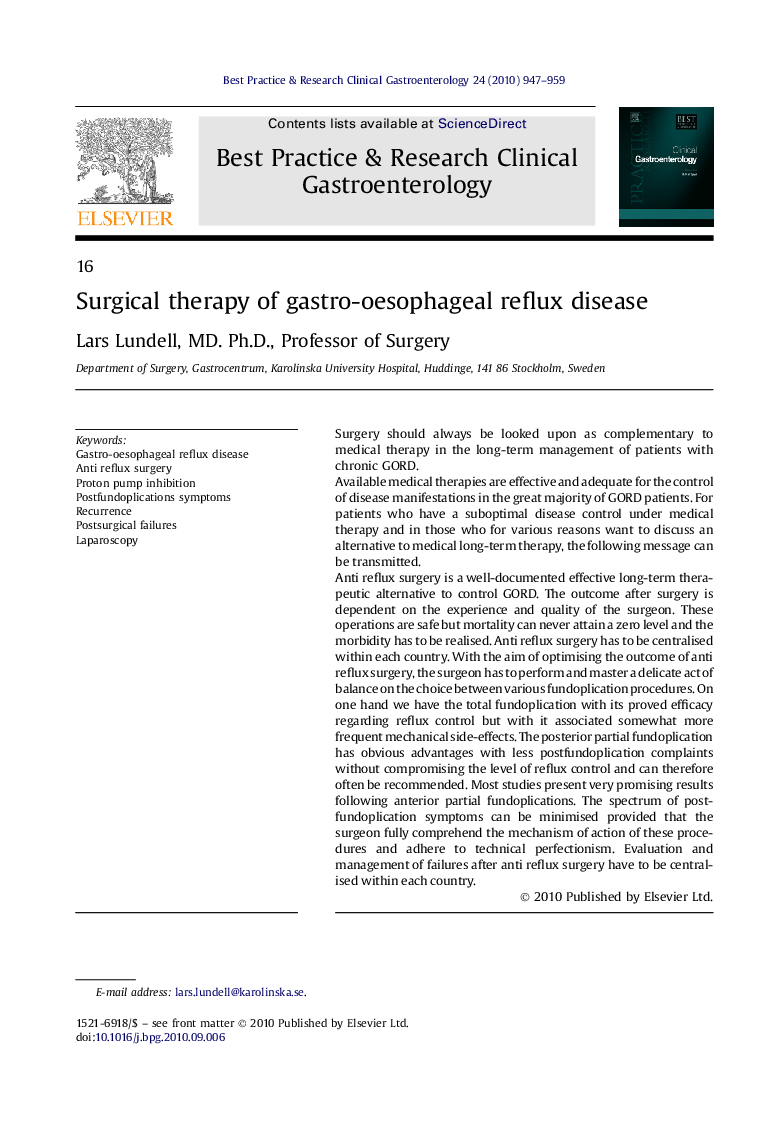| Article ID | Journal | Published Year | Pages | File Type |
|---|---|---|---|---|
| 3254386 | Best Practice & Research Clinical Gastroenterology | 2010 | 13 Pages |
Surgery should always be looked upon as complementary to medical therapy in the long-term management of patients with chronic GORD.Available medical therapies are effective and adequate for the control of disease manifestations in the great majority of GORD patients. For patients who have a suboptimal disease control under medical therapy and in those who for various reasons want to discuss an alternative to medical long-term therapy, the following message can be transmitted.Anti reflux surgery is a well-documented effective long-term therapeutic alternative to control GORD. The outcome after surgery is dependent on the experience and quality of the surgeon. These operations are safe but mortality can never attain a zero level and the morbidity has to be realised. Anti reflux surgery has to be centralised within each country. With the aim of optimising the outcome of anti reflux surgery, the surgeon has to perform and master a delicate act of balance on the choice between various fundoplication procedures. On one hand we have the total fundoplication with its proved efficacy regarding reflux control but with it associated somewhat more frequent mechanical side-effects. The posterior partial fundoplication has obvious advantages with less postfundoplication complaints without compromising the level of reflux control and can therefore often be recommended. Most studies present very promising results following anterior partial fundoplications. The spectrum of postfundoplication symptoms can be minimised provided that the surgeon fully comprehend the mechanism of action of these procedures and adhere to technical perfectionism. Evaluation and management of failures after anti reflux surgery have to be centralised within each country.
